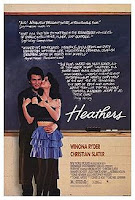Lady Bird will become
a victim of its own success. Due to all of the hype surrounding this film
during the awards season, it is difficult to be amazed by it when watching it for
the first time. It is almost impossible to view a film with this much praise
and not have high expectations, which are inevitably going to be dashed by an understated
indie comedy-drama. This is definitely a well-observed and well-acted coming-of-age
film, however, is it worth all of the excitement? It is difficult to get on
board at first.
Yes, it is fantastic that a female has been nominated for
best director for only the fifth time in the history of the Academy Awards, and
Saoirse Ronan is wonderful in the titular role, but is this one of the best
films of the year? Doubtful. Yet, on the positive side, this is more an issue
with Hollywood and the Academy Awards as a whole rather than Greta Gerwig’s first
solo outing as a director.
Christine, or Lady Bird as she prefers to be known (for
reasons we never find out), is seventeen and living in Sacramento, California.
She “lives on the wrong side of the tracks” both literally and figuratively,
and craves escapism to a place with more culture - her plan being to apply to
colleges in New York to get away from the town where everyone knows everyone. We
see Lady Bird as she argues with her mother repeatedly, an amusing opening
scene in a car where Lady Bird jumps out of the moving vehicle to escape her
mother’s derogatory comments sets the tone of the film, she embarks on her
first relationship, befriends the coolest girl in the school and takes part in
the school play.
In true coming-of-age fashion Lady Bird goes on a journey
and we are there with her through the ups and downs. Funny and moving, this is
a charming film with a more realistic portrayal of youth and particularly a
teenager’s complex relationship with her mother - a brilliantly observed scene
in a thrift store where Lady Bird is trying to find a dress for Thanksgiving
sees herself and her mother, played superbly by Laurie Metcalf, arguing one
minute and then best friends the next as Marion finds her daughter a suitable
dress. It is moments like this that really make this film.
Shot with a sense of naturalism, the film’s realism allows
the focus to remain on the central characters and, if you do invest in these
characters, Lady Bird is a rewarding
and thought-provoking film that will make you want to phone your mum and tell
her you love her.
Ignore the hype and make up your own mind. For me, the film beautifully
meditates upon the idea of reality versus fantasy; how we can only truly value
something once we don’t have it/aren’t there anymore.
People should go and see this film, not because of the
awards hype, but because this is what cinema can be for mainstream audiences
too: a truthful, thought-provoking character study rather than a mundane, overproduced
display of machismo.















